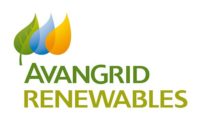With the comment period just ended for a U.S. government proposal to require climate-change impact reporting for federal contractors, responses were predictably polar from business trade groups and environmental advocates—but a few were unexpected.
The rule was proposed last November by the Federal Acquisition Regulatory Council on behalf of three major federal contracting agencies that are council members—the U.S. Defense Dept., NASA and the U.S. General Services Administration. It requires contractors to disclose greenhouse gas emissions and climate-related financial risks, and to set science-based reduction targets, based on amount of annual federal revenue.
The rule implements what President Joe Biden said in an executive order would advance “consistent, clear, intelligible, comparable, and accurate disclosure of climate-related financial risk.” The disclosure rules would be proposed amendments to the Federal Acquisition Regulation (FAR).
The rule appears to be the first to incorporate environmental impact and risk into the federal procurement process. “The U.S. federal government is the largest purchasing organization in the world and this proposed rule would have a significant effect on supply chain operations," said attorneys from Thomson Hines, noting that “climate-related risk disclosures may be an important component of future responsibility determinations.”
Many commenters said the rule would impose significant costs on contractor business costs, but in joint comments, the American Small Business Chamber of Commerce and Small Business Alliance of Government Contractors noted that “the greater risk to small business would be to ignore the threat of greenhouse gas emissions and climate related financial risks,” emphasizing that it is “no longer a distant threat.”
Under the proposal, federal contractors awarded between $7.5 million and $50 million in annual federal contracts would have to publicly disclose so-called Scope 1 and Scope 2 emissions. Scope 1 pertains to direct emissions from sources owned or controlled by a contractor, such as a fleet or a power plant. Scope 2 covers emissions from generation of energy that the contractor purchases.
Federal contractors with less than $7.5 million in annual contracts would be exempt from the rule, as are some larger contractors such as Alaska native companies, universities and state and local government entities.
Contractors with federal revenue exceeding $50 million would also have to inventory and disclose certain categories of Scope 3 emissions—which cover those produced by a company’s customers and suppliers, as well as indirect emissions linked to purchase of electricity, steam, heat, or cooling. They also would have to set science-based targets to reduce the emissions to be eligible for federal contracts.
The FAR Council said it estimates the proposed rule will cover 86% of “supply chain GHG impacts” and “provide a better understanding of the federal supply chain impacts, including Scope 3 emissions reported by major contractors.”
But a coalition of contractor trade groups—which include the Associated General Contractors, Associated Builders and Contractors and the American Road and Transportation Builders Association—urged in a joint comment that the FAR council "abandon and withdraw the proposal entirely.” The groups said “it would impose significant liability risk and cost burdens on federal contractors that is contrary to federal procurement laws.”
They also claim the added regulatory burden would make increasing small business participation in federal contracting more difficult, despite the $7.5 million floor. In their comment, however, the small business group respondents said that data from larger firms could be beneficial toward helping their GHG reduction efforts.
The National Association of Manufacturers said if finalized, the proposed amendments to the FAR will have serious implications for federal contractors across the manufacturing sector and for the federal government itself. “The proposal would impose novel and costly requirements on thousands of companies supplying the government, as well as on businesses throughout those contractors’ value chains,” the group said.
For steelmaker Nucor, new costs imposed “will create a significant economic burden and limit economic project development,” it said in comments. The American Petroleum Institute said it commends the objective to reduce GHG but warned that the proposed rule may limit ability of federal agencies to procure critical fuels.
The American Council of Engineering Cos. said the estimated direct cost of compliance with the proposed rule is $604.7 million in the first year it is implemented and $442.8 million for each subsequent year. The indirect costs are “of potentially greater concern,” the group said.
The proposal requires measuring emission output and data gathering that is often beyond the capability of many small and medium size businesses, ACEC said. “This would result in many small businesses having to hire outside consultants or staff ... to achieve compliance” that would “dramatically increase the cost of doing business with the federal government," it noted.
The engineers' group argued that the requirement directly conflicts with the administration goal to enhance U.S. competitiveness and economic growth. ACEC noted that professional services such as engineering are not among the industries that contribute significantly to greenhouse gas emissions, “which further calls into question the benefits of reporting what are comparatively minimal emissions compared to the compliance burden.”
A group of 22 states opposed the proposal by arguing that it would have devastating effects on the economies of states dependent on fossil fuels.
“Requiring federal contractors to adopt extreme green initiatives promotes the radical climate policies of a few at the expense of the many,” Kentucky Attorney General Daniel Cameron said. Other opposing states, including West Virginia, Texas, and Louisiana, agreed that the FAR exists to promote efficiency in federal procurement, “not to serve as a vehicle for climate-change policies.”
But more than 80 environmental, social justice, and food and agriculture organizations praised the FAR Council for recognizing the potential to leverage U.S. government purchasing power to mitigate climate change by requiring federal suppliers to disclose their emissions and climate risk.
The FAR Council will consider comments before issuing the final rule, but its timeline for being issued is unclear.
But based on comments in the record and made in other venues, states, some industry groups and Congressional lawmakers are questioning whether the Biden administration has legal authority to issue the rule, fueling speculation of at least one or more lawsuits if if the final regulation resembles the current proposal.







Post a comment to this article
Report Abusive Comment